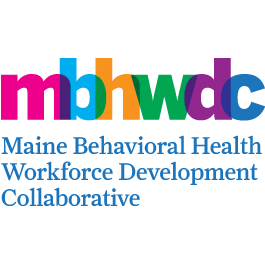Description
RESCHEDULED
December 9-10, 2024 | 1:00-4:00pm
Virtual via Zoom
NOTE:
-This training is for those who work in Maine.
-Those in peer support roles and substance use roles will be prioritized for this training.
Description:
This training will focus on developing peer support budgets and ways to effectively build an inclusive and informed budget process with your team. There will be an introduction to basic finance language and practices as well as exploring how organizations typically develop budgets. The training will cover how to navigate the DHHS Office of Behavioral Health budget forms practically and effectively as well as how to read and identify issues in a budget. Participants will practice building a budget as well as learn how to use basic excel formulas.
Check out the other sessions in this series here: Session 1: Peer Support Supervision | Session 2: Developing Team Culture in Peer Support Programs | Session 3: Fundamentals of Peer Support Program Development | Session 4: Introduction to Peer Support Budgeting | Session 5: Advanced Peer Support Budgeting | Technical Assistance
Objectives:
• Gain a foundational understanding of common budget elements
• Gain knowledge and skill with reading and managing budgets
• Gain practical experience in developing budgets at various scales and scopes
Presenter:
 Randy Morrison (he/him) is a person who personally understands the challenges of navigating substance use and mental health concerns. He is a Certified Intentional Peer Support (IPS) Specialist, IPS Trainer, and CCAR Recovery Coach trainer; and has a master’s in public health and a master’s in policy, planning and management. Randy spent over seven years leading the growth and implementation of peer support programs across Maine’s largest healthcare system before becoming a full-time trainer and consultant. During his time as a senior leader, he grew a peer support team of 3 peer supporters to over 65, the largest in Maine. The programs spanned substance use peer support, mental health peer support, youth peer support, and family/parent peer support. Those positions worked in a variety of settings as well, including emergency departments, primary care, behavioral health clinics, youth early intervention programs, case management programs, and four peer support centers. Randy was a co-author on a manual for integrating peer support into multidisciplinary and clinical settings. Randy is passionate about peer support fidelity and creating systems that center the people utilizing them.
Randy Morrison (he/him) is a person who personally understands the challenges of navigating substance use and mental health concerns. He is a Certified Intentional Peer Support (IPS) Specialist, IPS Trainer, and CCAR Recovery Coach trainer; and has a master’s in public health and a master’s in policy, planning and management. Randy spent over seven years leading the growth and implementation of peer support programs across Maine’s largest healthcare system before becoming a full-time trainer and consultant. During his time as a senior leader, he grew a peer support team of 3 peer supporters to over 65, the largest in Maine. The programs spanned substance use peer support, mental health peer support, youth peer support, and family/parent peer support. Those positions worked in a variety of settings as well, including emergency departments, primary care, behavioral health clinics, youth early intervention programs, case management programs, and four peer support centers. Randy was a co-author on a manual for integrating peer support into multidisciplinary and clinical settings. Randy is passionate about peer support fidelity and creating systems that center the people utilizing them.
Contact hours:
6 contact hours for social workers, licensed clinical professional counselors, and behavioral health professionals
6 category I contact hours for psychologists. CCSME is a pre-approved sponsor and provider of Professional Education Activities for Psychologists.
6 contact hours for Alcohol and Drug Counselors pending approval from the Maine Board of Alcohol and Drug Counselors.
6 contact hours for CHES. CCSME is a designated provider of continuing education contact hours (CECH) in health education by the National Commission for Health Education Credentialing, Inc.





